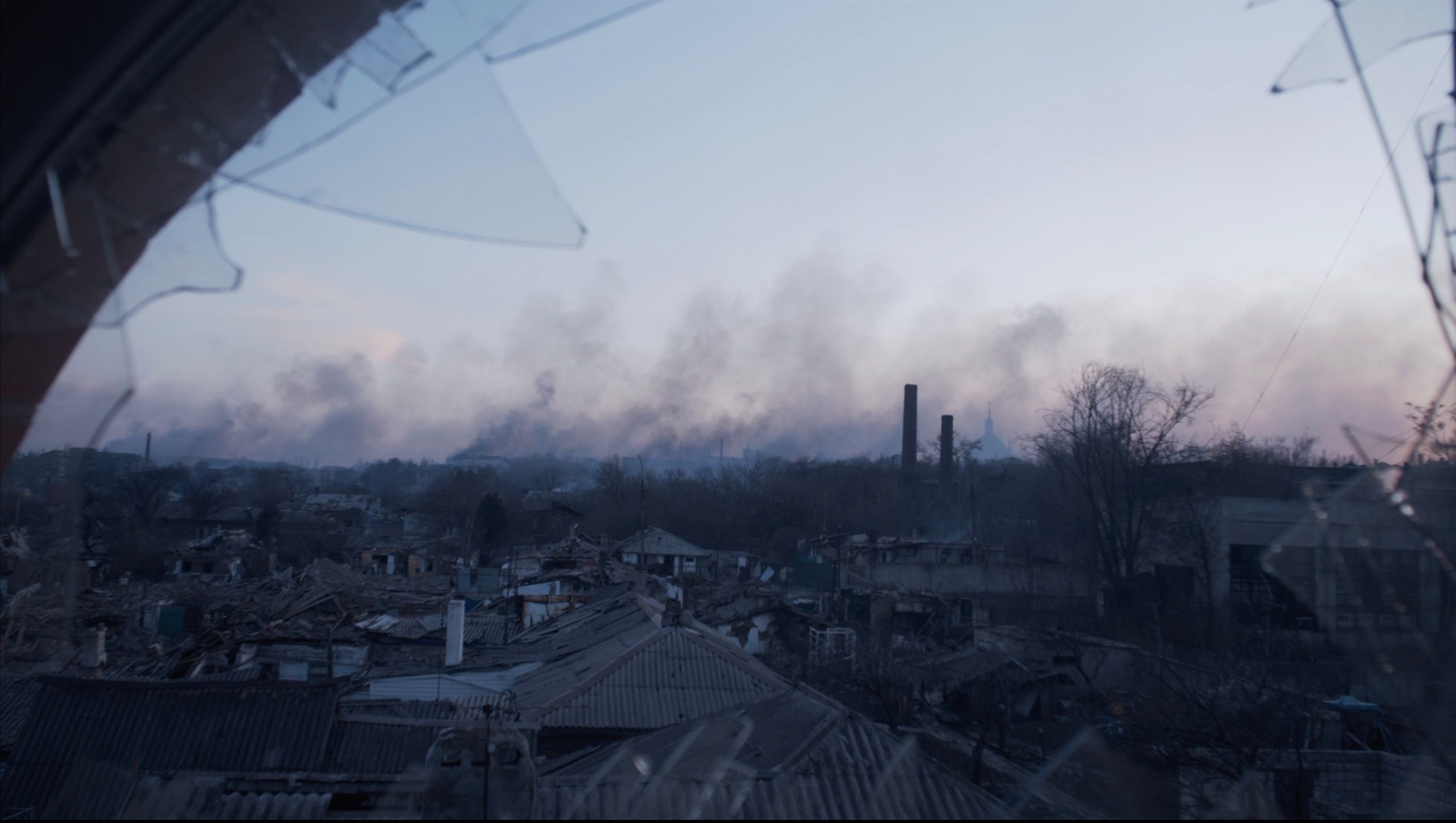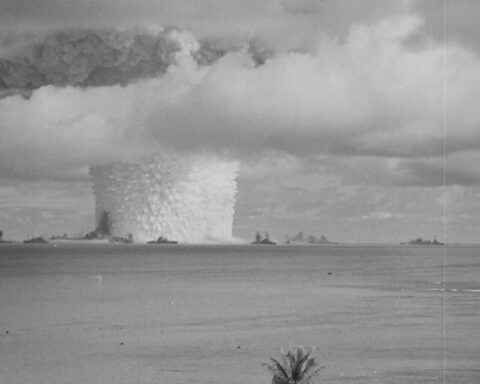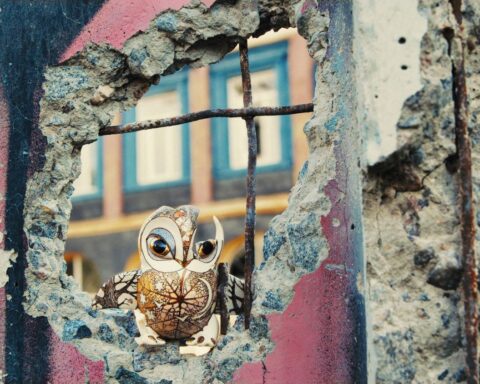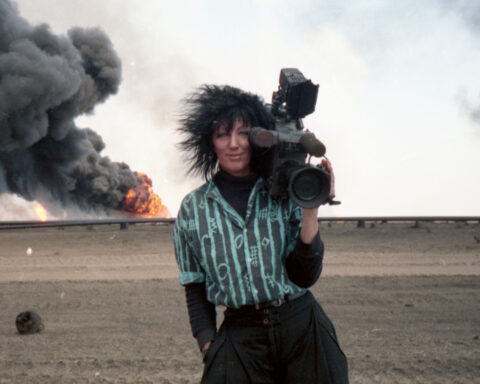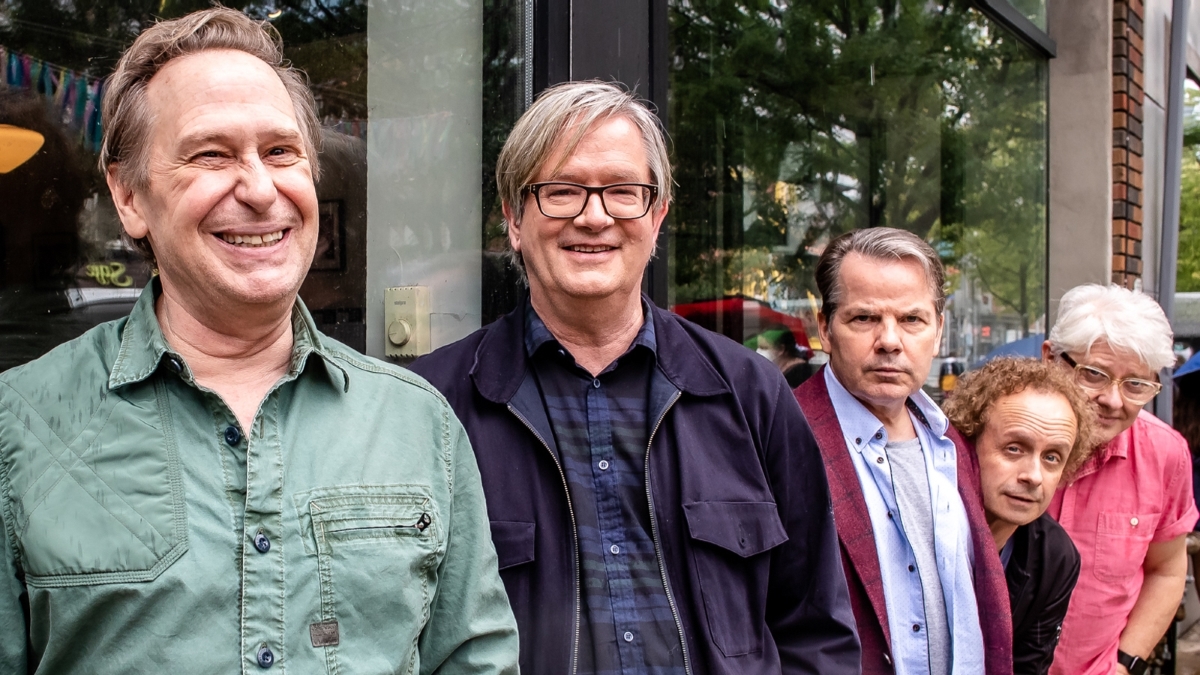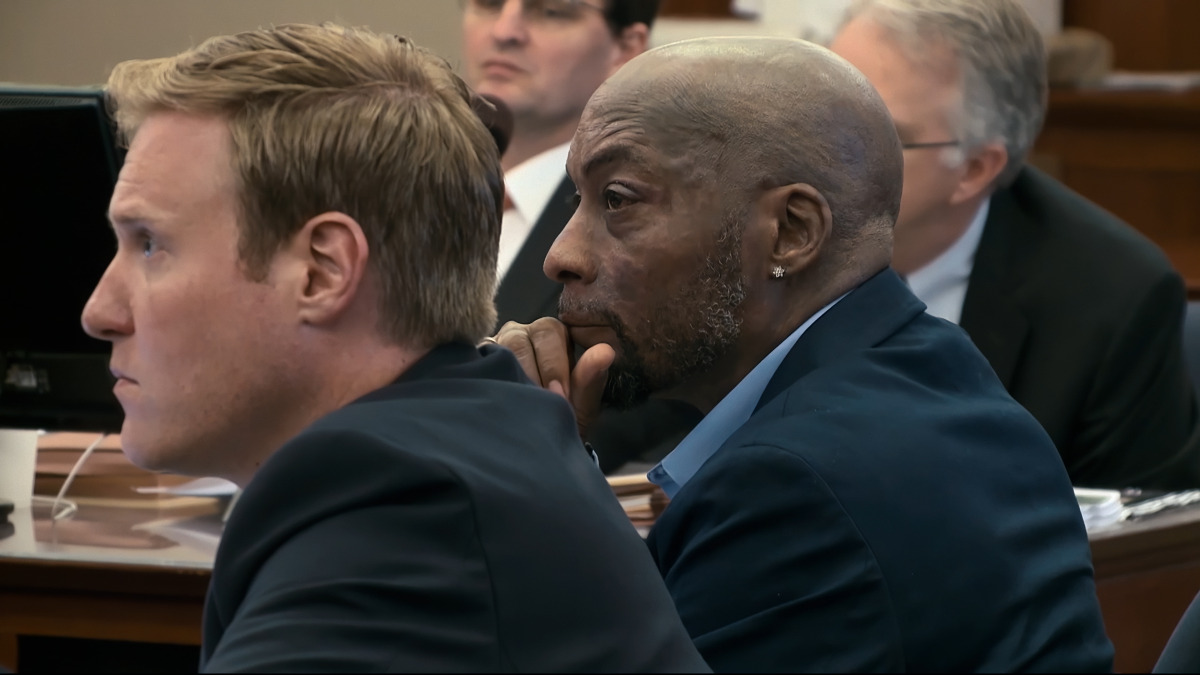Mariupolis 2
(Lithuania/France/Germany, 112 min.)
Dir. Mantas Kvedaravičius
If a filmmaker falls while filming, should a critic cast a view? This question is hardly the deepest of philosophical quandaries, but a fair one given that Mantas Kvedaravičius’ Mariupolis 2 barely qualifies as a film by normal standards. At best, it’s a collection of rough scenes, like papers torn from a journal and re-assembled, rather than crafted into a coherent and meaningful whole. However, given the current situation in Ukraine, and that the filmmaker gave his life to capture these images, these critiques come across as gormless, tactless, or perhaps even repugnant.
And yet here we are. Mariupolis 2, finished with the cooperation of Kvedaravičius’ fiancée, Hanna Bilobrova, and his regular editor Dounia Sichov, premiered at the Cannes Film Festival mere weeks after the director’s tragic death. The post-production team has attempted to give a glimpse into life under bombardment, fixated on a church in the middle of residential area. Gathered within the group are mostly elderly locals whose lined faces show existences hard-lived, yet with little preparation for this time of major onslaught. There’s talk of prayer, and how people in the church had their wished granted from higher powers, while a local building became, in their words, a “mass grave” for the lost souls who huddled there and maybe didn’t believe enough. It seems that even God picks sides, with their creator deciding to have scores of children buried under the rubble ostensibly due to their lack of prayerful protestation.
People say wild things under bombardment. One telling moment involves a man desiring the good old days where fascism made things a bit easier, and the Soviet system was preferred to being under attack. These aren’t particularly intelligent statements, nor are they thought-out or well-reasoned. Instead, they’re simply spouted to pass the time amid the strange drudgery of watching fires burn in the distance while the sound of artillery and rockets crash like thunder against the tightly-packed stone walls outside the sanctuary.
Scene after scene of the infrastructure in the distance is captured with the elegance of security footage – framed reasonably well, but providing very little in the way of either narrative coherence or aesthetic value after a dozen repetitions. This the rubble of a film that never could be with the loss of the filmmaker, and the shards of time and place ultimately—and ironically—resemble a pile of detritus rather than something salvaged and sculpted.
All this may seem harsh to the film, but as (seemingly) one of the few critics who screened Kvedaravičius’ 2016 original documentary can attest that, while his footage lives, his spirit is little to be seen in this so-called sequel. Where the first film also took an unapologetically laconic approach, there was intention in each frame, finding interest in these tiny moments that together deliver a rich yet subtle portrait of a city. Back then, things were simply rumbling, and it’s downright unsettling how this version of this city from a mere few years ago is now lost forever.
In the first Mariupolis, several scenes take place in a steel factory that dominates the town’s landscape. Inside the infernal furnaces, the original film gives a sense of awe to the human political struggles that then were simmering yet not quite approaching full, raging boil. To see every scene in Kvedaravičius’ previous Mariupolis is to see the ghost of a city. As global news organizations talked about the fallen refuge of that steel fortress at the film’s end, the conclusion provided a metatextual surrealism that’s deeply unsettling.
However, Kvedaravičius likely never wanted a sequel, and certainly could have happily seen this city transformed into one free of overt conflict. Yet in 2022, he returned to respond to the situation as it unfolded. This time, rather than giving a sense of the scope of the place with myriad and contradictory storylines, his footage here is constrained to one small block. Whereas the original gives a sense of place, the second chapter feels confined. Claustrophobic. Tomb-like.
The obvious pall over Kvedaravičius’ passing—the filmmaker was captured by Russian troops and executed according to news reports—is the phantom at the heart of the sequel. Yet anyone going in looking for some vicarious, macabre thrill of witnessing those moments on screen will be disappointed. This isn’t some true crime voyeurism, nor does it interrogate the risks the filmmaker took. Instead, it’s nearly two hours of relatively uninteresting, meandering shots, the puzzle pieces that were never to be assembled in such a fashion. Thought of another way, this is hours spent staring at scaffolding, while the building itself will forever be obscured from view.
It’s no small irony that Kvedaravičius’ first film received little attention when it came out. It certainly wasn’t selected for a prestigious festival like Cannes, nor was it covered in every major paper in the world. Yet here we are with his last images, presented almost like a memorial show of what was to be, a bitter snapshot in the middle of ongoing murder. In death, he achieved notice, his film gained notoriety, added to provide comment at an event that’s inexorably linked to what’s taking place several hundred kilometers to the east.
If Mariupolis 2 accomplishes anything, it may be to drive interest in the under-seen original. Such a return would allow a viewer to experience the events of today through the lens of the recent past. I understand why the festival chose to show Mariupolis 2, but it’s hard to recommend the documentary given how mildly it connects to the original. Instead, I encourage readers to take on the challenge of finding access to the first Mariupolis and see the finished work of a filmmaker who clearly had skill, a keen eye, and a yearning to tell the tale of one city on the break of Armageddon. If he gave his life for his art, we should celebrate his art in its best and most fully realized form.
Mariupolis 2 premiered in the Special Screenings section of the 2022 Cannes Film Festival.




